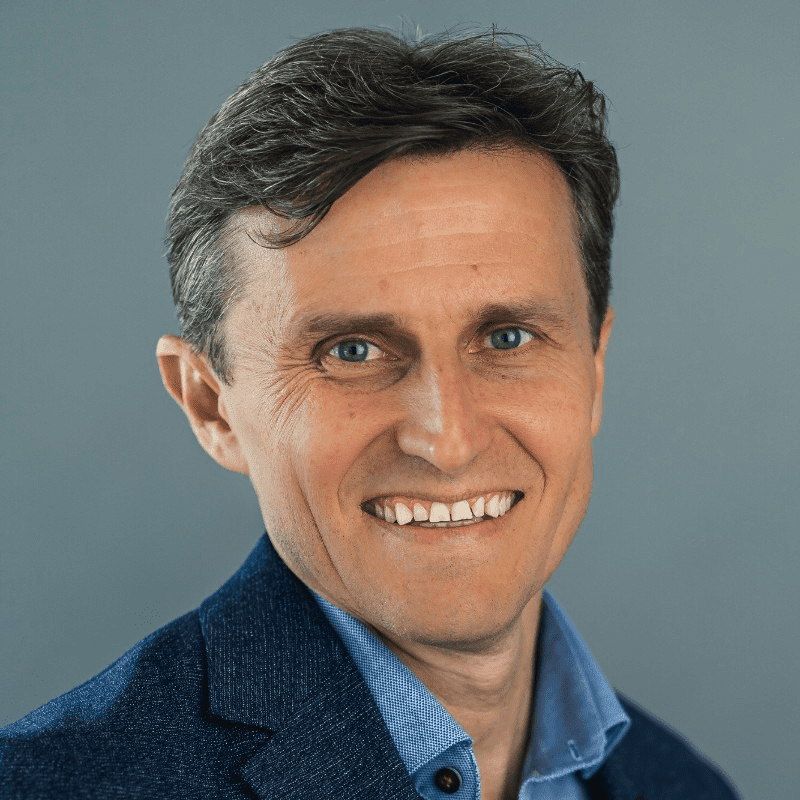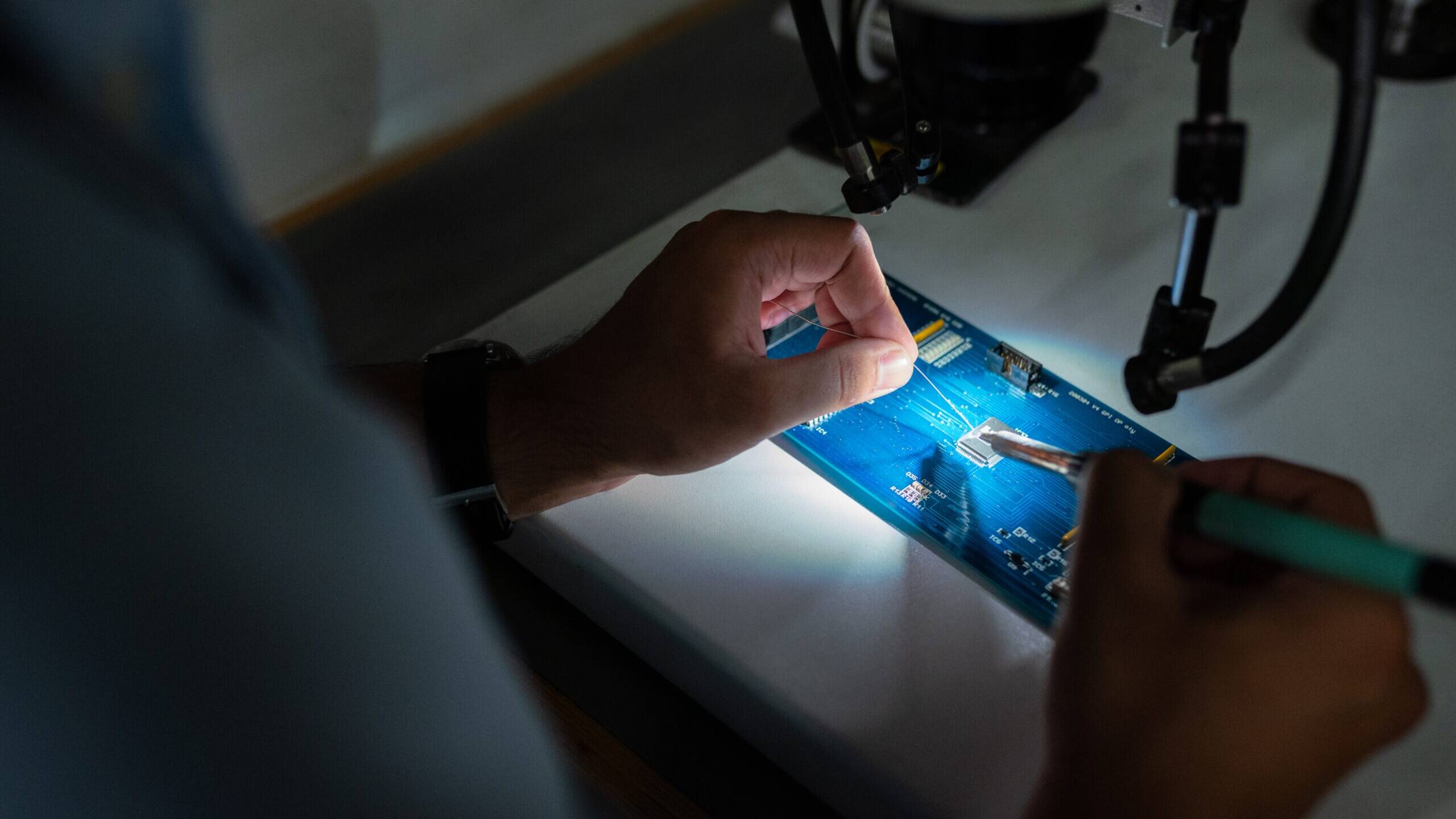With his experience as an entrepreneur, executive, board member, and investor, Philipp Ries brings an external view to the discussions of the investment committee of the Verve Venture Fund. In this interview, he talks about his career and the work associated with taking decisions about investing in startups.

Chairman of the Board, Hapimag
Philipp Ries has several roles. He is chairman of the board of Hapimag, a pioneer of the sharing economy that offers holiday apartment experiences to over 120’000 members that are also shareholders of the company. Philipp also has more than a decade of experience working at Google in Zurich, where he is currently responsible for Google search product partnerships in the EMEA region. He has been part of the Verve Ventures investor community since 2017, and 2022 joined the investment committee of Verve Venture Fund I. The other members of the committee are the two co-founders of Verve and two investment professionals.
You started early as an internet entrepreneur. What is the story behind it?
I grew up in a family that ran a printing shop with around a dozen employees. Business was always a very present topic at home. I studied information systems and did an internship at IBM when the internet was still in its infancy. Since I didn’t want my parents to pay for my studies, I started a small business with two friends, an agency called “ICP Internet and Computer Partner” with its own web server and a dedicated 128kbit line, and ran it out of a small room I rented. We helped the Swiss Tennis Federation to establish its online presence and we realized and ran the first website for Roger Federer when he was 17. Later on, we bought the domain sport.ch for 4500 Francs.
Out of this, you established a second, larger business.
Yes, together with a friend we started to think bigger and established a business plan. We raised 2.5 million Francs and built sport.ch into a dedicated sports website with a content team of more than a dozen people financed through advertising. We had a very cool team and exciting interviews, for example with the boxer Stefan Angehrn and the cyclist Rolf Järmann. We also built a developer team in Vietnam that counted as many as 45 employees. And we secured the right to buy the domain Sport.com for a whopping 5 million Dollars. However, before we could buy it, the dotcom bubble burst. We liquidated the firm in 2001 but we managed to keep the Vietnamese subsidiary and sell it three years later to a US firm. I was in my mid-twenties at the time, it was crazy. Luckily, a neighbor who also worked at IBM motivated me to finish my Master’s, which I did. After graduation, I entered HP’s graduate program, spent almost 7 years there, and later joined Google.
At that time, Google still had a small presence in Switzerland. Why did you join the company?
I saw Google’s impact first-hand in the business of my parents which we successfully transformed thanks to dedicated product websites and ads on Google. In my first attempt, I had 7 interviews at Google but wasn’t able to land the job I wanted. I tried again and got a position where I could help companies advertise their business on Google. Some of them were traditional big companies, others were cool startups such as GetYourGuide or HouseTrip, which at that time was bigger than Airbnb. Later, I led Google’s Smart home team in EMEA. Currently, I’m Product Partnership Lead and work 60% in a job share.
You’re also Chairman of the Board at Hapimag, a less-known but quite big organization. How did that come about?
Hapimag was founded 60 years ago by the lawyer Guido Renggli who was an original pioneer of the sharing economy. Once you buy a Hapimag share, which currently trades at around 2000 Euros, you have access to more than 5200 holiday homes in 55 resorts that we run in Europe, in the mountains, on the beaches and in the cities. The idea has a broad following with more than 120’000 shareholders. By the way, it is now possible to try out Hapimag without buying a share, just by opening an account on hapimag.com. I’ve been lucky to be on Hapimag’s board since 2017, leading it since 2020 and enjoy the challenge of strategically transforming the company together with a great board and the Co-CEOs Hassan Kadbi and Silvan Odermatt who are extremely passionate and super cool to work with.
You’ve also been an investor with Verve Ventures since 2017. How did that start?
In 2014 we lived near Stanford with my family and I followed a course on innovation, which sparked my interest in startups as a source of innovation next to big companies such as Google.
Back in Switzerland, I started even earlier to invest in startups on my own, in what seemed to be terrific founders with great ideas. However, they failed. Eventually, I invested in a startup that Verve invested in as well, and got to know the model and the founder Steffen Wagner. I thought that the idea of making startup investments easier was brilliant, and saw that Verve has a very professional team, so I started to make investments via Verve as well. When I had my first startup, Switzerland was way behind in terms of venture capital, there were no established structures, we were lucky to convince a successful businessman to invest in sport.ch. But Switzerland, and Zurich in particular, have changed for the better. Now there are a lot of interesting founders and Verve is doing a terrific job of making access to these people possible for a wider range of potential investors.

Invest in Startups
As one of Europe’s most active venture capital investors, we grant qualified private investors access to top-tier European startups. With investments starting at EUR/CHF 10’000, you can build your own tailored portfolio over time and diversify across stages and sectors.
Verve has been successful with its model of allowing investors to choose which startups they want to invest in on a deal-by-deal basis. In 2022, Verve launched its first traditional fund, the Verve Venture Fund I, which provides growth capital for Verve’s most successful portfolio firms. You’re part of the investment committee of the fund. What motivated you to be part of it?
As I said, I was always amazed by Verve’s team and their talented people from diverse backgrounds. And I made it known that I’d be happy to contribute in one way or another as I started to learn much more from further investments I made. When I heard of the idea behind the fund I was immediately convinced that it makes a lot of sense. The fund invests only in companies that Verve has already invested in before, into concepts that are validated and in teams that Verve has already worked with. The fund also gives investors the opportunity to join companies that already have a lot of traction, which is next to impossible otherwise.
For me, the fund investment committee meetings are a highlight of my work. I’m enthusiastic by nature, and I profit a lot from the discussions with the other team members and their critical input.
What is the investment process like?
The members of the investment committee receive a very detailed curation report that covers points such as the milestones achieved, the technology and business model, the competitive and M&A environment, the financials etc. We use it to prepare for our meeting with the founders, which we meet in person. After their pitch, there is a long Q&A session, and later the 5 members of the investment committee discuss and decide on the case.
How controversial are these discussions?
There are strong opinions, and of course, people are also saying no in some instances, but that’s the outcome of a good discussion. It also doesn’t mean that the startup is bad if the outcome of the fund decision is negative. Obviously, the fund has to be selective, since it’s going to invest in only about 20 startups over 3 years, and we get to look only at startups that have shown very good traction in the first place. For investment managers, it is another level of challenging their assumptions. These startups have all already established product-market fit, and the fund decision really depends on how much the founding team can scale their business.
How well established is the setup of this new fund?
The fund has been running since January 2022 and since then we have had a meeting every second week. By now, it is a well-oiled machine. In 2022, we made 5 investments: Sympatient, Flyability, Cofenster, Memo Therapeutics, and Yonder. We follow strict criteria in terms of geographies and industries and are well on the way to establishing a well-diversified growth-stage startup portfolio.
Are you investing in the fund as well?
Yes. For me, there is no better way to invest if you want exposure to venture capital as an asset class, and more precisely, in startups that are already proven. Next to the fund, I follow a rather conservative approach to investing by choosing broad stock market indices via exchange-traded funds. The Verve Venture fund has a different risk-return profile and is a welcome addition to my portfolio.
But now is probably not the best time for many to consider risky investments.
The movements of the stock market do not impede the growth of high-quality startups. When it comes to the more difficult economic outlook and fears of a recession, I’d say that this environment benefits young companies that have shown that their products are valid. At the moment, it is a good time to invest, if you can; the valuations are much more attractive than they used to be.
Written by
WITH US, YOU CANCO-INVEST IN DEEP TECH STARTUPS

Verve's investor network
With annual investments of EUR 60-70 mio, we belong to the top 10% most active startup investors in Europe. We therefore get you into competitive financing rounds alongside other world-class venture capital funds.
We empower you to build your individual portfolio.
More News
24.06.2022
Verve Ventures launches investment fund to support portfolio companies
The successful first closing of the CHF 100m fund will accelerate the development of Verve Ventures’ most successful startups
15.10.2021
“Constructive Venture Fund has access to a very strong deal pipeline”
In this interview, Patrick Schmid explains why a quarter of Avobis’ employees work in the innovation department, how renters can become owners and what the next phase of Constructive Venture Fund will look like.
15.10.2020
Informed decision-making when investing in startups
When it comes to startup investments, are you just betting or taking an informed decision? In this article, we argue that getting good information in private markets is hard work but quintessential for success.
Startups,Innovation andVenture Capital
Sign up to receive our weekly newsletter and learn about investing in technologies that are changing the world.




